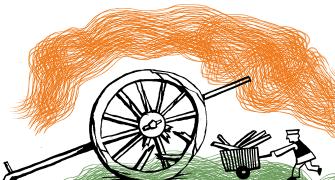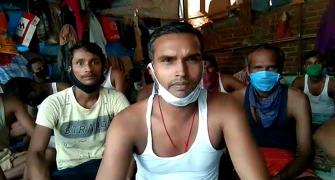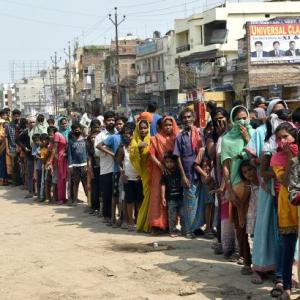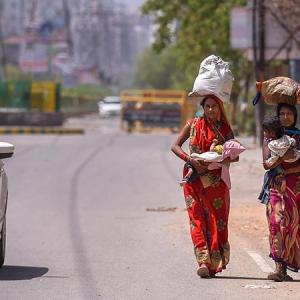'These days, you could give the money to your maid or the person who comes to collect your garbage or your watchman; they are struggling to make ends meet.'
'You could help a friend whose business is at risk due to the lockdown and the struggling economy.'
'Even if you lend money to someone in this crisis, it will be more useful to the economy than parking your money in some government fund,' says Praful Nikam.
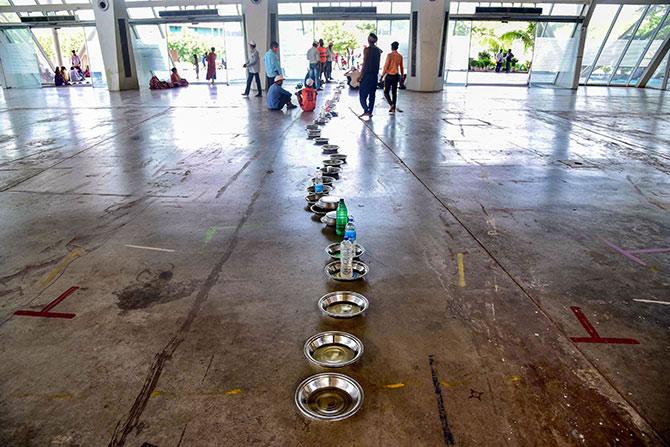
Warning: I am going to put forth a drastic premise.
I know it will be rejected by many, but this is something I have been thinking about for the last couple of years and I believe this is the correct time to make it a matter of public discussion.
There has been a lot of debate on the newly formed PM-CARES fund, the already existing Prime Minister's National Relief Fund and state funds like the Chief Minister's Relief Fund and the State Disaster Relief Fund.
The debate has centred around which platform is best suited for donation, how the funds are utilised, the tax exemption provided and the Corporate Social Responsibility (where corporates use part of their funds to support social causes; simply put, corporate philanthropy) involved.
I would like to focus on a few critical points that are not mentioned in these debates.
1. It is wrong!
Yes, I believe it is wrong for a state to seek donations from its citizens as the State is already levying taxes.
It is the State's responsibility to ensure it plans for all kinds of crises management.
In order to keep the economy running in the wake of a crisis, the State needs to push money into the hands of its citizens through various means and channels.
Seeking donations sucks money from the system and runs contrary to the thought of ensuring citizens have enough money to spend to keep the economy in good health.
2. Do governments need donations?
When there is a crisis, we first need to figure out what kind of crisis it is.
If it's not a money crisis, no matter how much citizens or anyone else donates, the crisis will not go away.
And if we consider the funds the government has at its disposal, these donations amount to less than peanuts.
To give you an example: The central government still has around Rs 50,000 crores that is to be given to the states for the welfare of construction workers. The total donation received, by the Centre and the states, for the coronavirus crisis from the public will be less than Rs 10,000 crores.
I don't need to explain further.
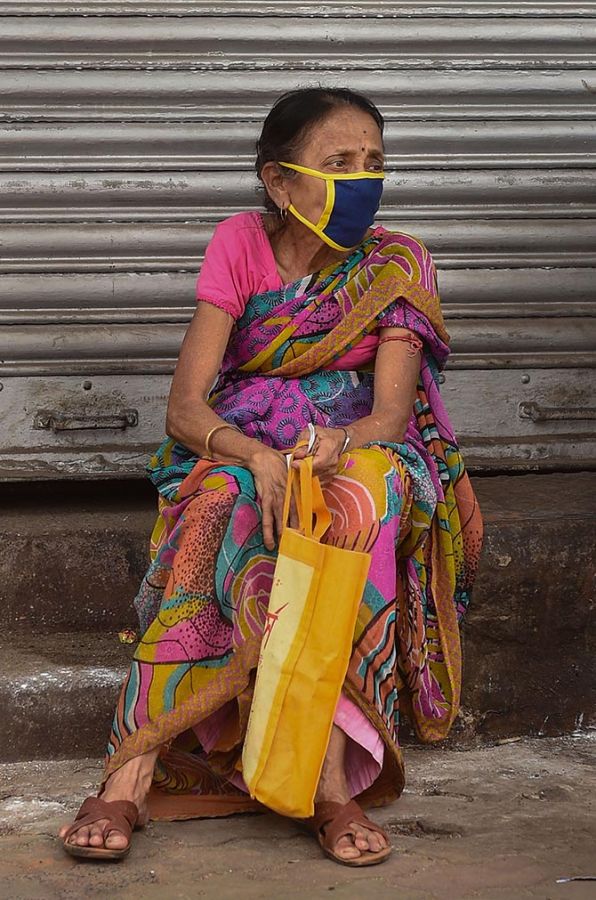
3. Utilisation of donations
Governments are not very good at utilising resources because of the different hierarchies prevalent in the system.
Even in the present crisis, we are centralising the resources, instead of decentralising it, by collecting donations.
The leadership may have good intentions when asking for donations, but the questions of underutilisation, delay, favour, etc, remain.
Donations are meant to support social causes, an area in which a government cannot be considered an expert.
It even goes against the concept of minimum government, maximum governance.
Good governance, in the case of donations, is about formulating laws and rules and leaving its execution in hands of expert non-government and/or private players.
4. Impact on society
The biggest loser when it comes to centralised donations is the social sector.
An NGO creates, over the years, a structure that includes employees, beneficiary relationships, a knowledge base, etc.
When CSR funds and donations are sucked by the government, this sector struggles.
Most industries will get some support from the government but NGOs will not have this benefit.
In the USA, NGOs are the third-biggest job providing sector. In India too, this sector provides a lot of jobs and there probably be many layoffs.
Local NGOs would have spent this Rs 10,000 crore more effectively and at least 1 lakh jobs would have survived for a year.

5. Tax benefits and CSR
CSR is based on the concept that the government can't focus on all things and private players need to fill the gap.
Here's a simple example. Let us suppose malnutrition is an issue in one slum in Pune. Obviously, the government cannot come up with a scheme or a policy since it is a hyper-local issue. But an NGO can take it on and resolve the problem.
To support such efforts, 80G and CSR were started so that citizens are motivated to donate for tax benefits and NGOs get resources.
If the government needs money today, it can simply add a new cess or tax or issue bonds. Why does it need to target CSR funds?
6. Focus of the nation
At the moment, fighting the coronavirus is the government's main priority. Which is as it should be.
But the NGOs will continue to focus on education, malnourishment, etc, which are important issues and are affected by the lockdown and the coronavirus.
As the result of COVID-19's impact on the economy, businesses will be forced to tighten their belts. This means the CSR budget will be impacted.
And if the government takes away part of it, then all long-term social projects will suffer.
We may, for example, see more deaths from malnourishment than because of the coronavirus because all resources were diverted to fighting the latter, leaving inadequate finances to combat the former.

7. PM's fund has CSR validity, CM's fund doesn't
Ideally, CSR money should not go to government funds. But, according to a law passed by the Manmohan Singh government in 2014, the PM-CARES fund qualifies for CSR while a Chief Minister's Relief Fund does not.
CSR was devised to encourage companies to support poor areas and social causes.
If they were allowed to donate to the CM's fund under CSR, then companies in rich states will only donate to the CM's fund in their state to curry political favour.
On the other hand, if they donate to the PM's fund, the money would go to the needy and to the poor areas.
At least, that was the idea.
Unfortunately, most CSR funds are spent in rich areas because of logistical and PR reasons.
The ideal way to spend CSR money is find an issue and focus on resolving it. What happens instead is that the focus today in on the location more than the issue.
8. Political favours
When the prime minister or a chief minister appeals for funds, there are donors who contribute a hefty amount. As a result, the PM or the CM is under an obligation to give preferential treatment to these donors.
Even if they don't feel this sense of obligation, the officers/bureaucrats who work under them have the impression that the donor is close to the leader, so the donor's needs will be resolved quickly and painlessly.
9. Where should you donate your money?
Don't donate to state or central government funds. All it will do is give you a false sense of satisfaction.
It is better to donate to a local NGO.
The government has a lot of funds, but it will not be able to support local needs; these are the needs you can cater to.
These days, you could give the money to your maid or the person who comes to collect your garbage or your watchman; they are struggling to make ends meet.
You could help a friend whose business is at risk due to the lockdown and the struggling economy.
Even if you lend money to someone in this crisis, it will be more useful to the economy than parking your money in some government fund.
I hope reading this has given you some insight into how funds/trusts are utilisation. I hope it allows you to make the right decision before you hit the donate button.
Praful Nikam, a software engineer-turned-social activist, is founder president of Y4D Foundation, a registered charitable trust that works to empower children, the youth and women.

